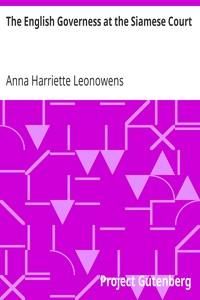Read this ebook for free! No credit card needed, absolutely nothing to pay.
Words: 124668 in 34 pages
This is an ebook sharing website. You can read the uploaded ebooks for free here. No credit cards needed, nothing to pay. If you want to own a digital copy of the ebook, or want to read offline with your favorite ebook-reader, then you can choose to buy and download the ebook.


: By England's Aid; Or the Freeing of the Netherlands 1585-1604 by Henty G A George Alfred - Historical fiction; Netherlands History Eighty Years' War 1568-1648 Fiction Children's Fiction; Historical Fiction
CHAP.
Plan of Sluys and the Castle, to illustrate the Siege of 1587
Plan of Breda and its Defences, illustrating its surprise and capture in 1590
Map of Cadiz and Harbour at the time of its capture in 1596, showing the position of the English and Spanish Ships
Plan of Ostend and its Defences, showing the lines of the attacking forces during the siege of 1601-4
BY ENGLAND'S AID
AN EXCURSION
"And we beseech Thee, O Lord, to give help and succour to Thy servants the people of Holland, and to deliver them from the cruelties and persecutions of their wicked oppressors; and grant Thy blessing, we pray Thee, upon the arms of our soldiers now embarking to aid them in their extremity." These were the words with which the Rev. John Vickars, rector of Hedingham, concluded the family prayers on the morning of 6th December, 1585.
For twenty years the first portion of this prayer had been repeated daily by him, as it had been in tens of thousands of English households; for since the people of the Netherlands first rose against the Spanish yoke the hearts of the Protestants of England had beat warmly in their cause, and they had by turns been moved to admiration at the indomitable courage with which the Dutch struggled for independence against the might of the greatest power in Europe, and to horror and indignation at the pitiless cruelty and wholesale massacres by which the Spaniards had striven to stamp out resistance.
From the first the people of England would gladly have joined in the fray, and made common cause with their co-religionists; but the queen and her counsellors had been restrained by weighty considerations from embarking in such a struggle. At the commencement of the war the power of Spain overshadowed all Europe. Her infantry were regarded as irresistible. Italy and Germany were virtually her dependencies, and England was but a petty power beside her. Since Agincourt was fought we had taken but little part in wars on the Continent. The feudal system was extinct; we had neither army nor military system; and the only Englishmen with the slightest experience of war were those who had gone abroad to seek their fortunes, and had fought in the armies of one or other of the continental powers. Nor were we yet aware of our naval strength. Drake and Hawkins and the other bucaneers had not yet commenced their private war with Spain, on what was known as the Spanish main--the waters of the West Indian Islands--and no one dreamed that the time was approaching when England would be able to hold her own against the strength of Spain on the seas.
Thus, then, whatever the private sentiments of Elizabeth and her counsellors, they shrank from engaging England in a life and death struggle with the greatest power of the time; though as the struggle went on the queen's sympathy with the people of the Netherlands was more and more openly shown. In 1572 she was present at a parade of three hundred volunteers who mustered at Greenwich under Thomas Morgan and Roger Williams for service in the Netherlands. Sir Humphrey Gilbert, half-brother of Sir Walter Raleigh, went out a few months later with 1500 men, and from that time numbers of English volunteers continued to cross the seas and join in the struggle against the Spaniards. Nor were the sympathies of the queen confined to allowing her subjects to take part in the fighting; for she sent out large sums of money to the Dutch, and as far as she could, without openly joining them, gave them her aid.
Spain remonstrated continually against these breaches of neutrality, while the Dutch on their part constantly implored her to join them openly; but she continued to give evasive answers to both parties until the assassination of William of Orange on 10th July, 1584, sent a thrill of horror through England, and determined the queen and her advisers to take a more decisive part in the struggle. In the following June envoys from the States arrived in London, and were received with great honour, and a treaty between the two countries was agreed upon. Three months later the queen published a declaration to her people and to Europe at large, setting forth the terrible persecutions and cruelties to which "our next neighbours, the people of the Low Countries," the special allies and friends of England, had been exposed, and stating her determination to aid them to recover their liberty. The proclamation concluded: "We mean not hereby to make particular profit to ourself and our people, only desiring to obtain, by God's favour, for the Countries, a deliverance of them from war by the Spaniards and foreigners, with a restitution of their ancient liberties and government."
Free books android app tbrJar TBR JAR Read Free books online gutenberg
More posts by @FreeBooks

: The English Governess at the Siamese Court Being Recollections of Six Years in the Royal Palace at Bangkok by Leonowens Anna Harriette - Leonowens Anna Harriette 1831-1915 Homes and haunts Thailand; Mongkut King of Siam 1804-1868; British Thailand History


: Behind a Mask; or a Woman's Power by Alcott Louisa May - Governesses Fiction; Sex role Fiction; Man-woman relationships Fiction; Women Social life and customs Fiction





